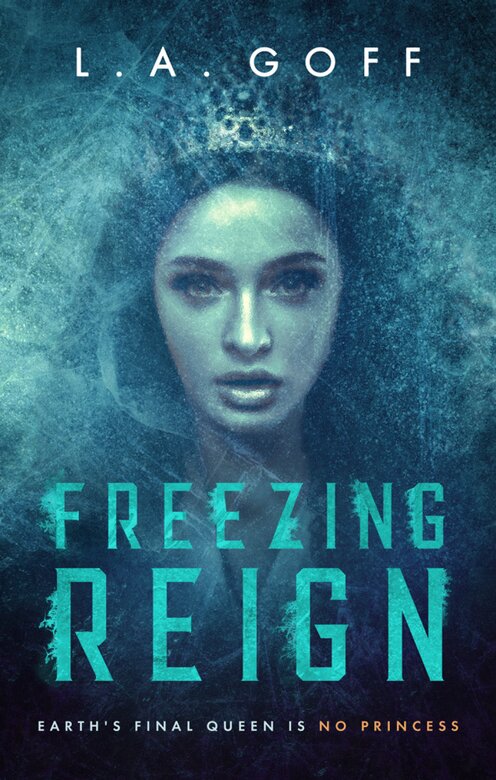
Tapping into contemporary fears and deep-seated themes of equality and purpose, Freezing Reign by L.A. Goff is an ambitious work of dystopian fiction, and the first installment of a tough but emotional new series.
As the Olympian virus continues to rip through the female population of the planet, Mirari Vega’s father makes an impossible choice to place his healthy daughter in a homemade cryogenic chamber before her chromosomal fate is sealed. Having already missed the chance to save his wife, he promises to bring his daughter back once the technology to safely revive her exists. A dozen years later, Mirari awakes to a team of “feminal” robots supporting her through a long re-entry and rehabilitation process, but soon discovers that the world has spiraled deeper into crisis than she could have ever imagined.
As the last human female on the planet, Mirari’s survival and capacity for fertility are priceless, which means that there are plenty of forces who would seek to put her in a cage. The journey to reunite with her father is a treacherous one, revealing just how violent and unpredictable the world has become, even with pseudo-mindless feminals filling in to satisfy the needs of an even more toxically patriarchal society. The painful twist is that our ultimate sources of trust and love may eventually come to betray us, at which point we need to fight vigorously for our freedom.
The author plays beautifully with the awareness of one’s innate potential, lying in opposition with extreme restraint, until a breaking point is reached. The fact that this theme plays out in both robots and humans alike holds up a twisted mirror on current sociopolitical, biological, and technological challenges we face in the modern world. The oppression of women is driven to a dystopian extreme in this novel, delivering blunt truths and delicate symbolism with equal skill. Trust, betrayal, desperation, and existential ethics blend in a patiently unfolding, thought-provoking thriller that perfectly blends social critique with suspense.
Certain lines will draw readers back to the emotions of the pandemic, and remind them of the potential for more trouble on the horizon: “I was tired of talking about the pathogen, but Papa always gave it a seat at our kitchen table.” Each of the characters are similarly stricken with grief at the monumental losses they have each suffered – family members, mothers, sisters, daughters, and anything close to normality. Rarely is a female character centered as the “hope for us all” type figure in the way drawn here, but Mirari fits the bill and then some, offering rebellion and pragmatism in equal measure, as well as creativity and independence.
From a technical perspective, there are few mistakes, evidence of a meticulous edit, though some of the narrative passages are a bit methodical and procedural. Self-referential questions can help authors cut corners and fill in expositional gaps, but sometimes it doesn’t give the audience enough credit, and can veer toward being patronizing in the prose.
As a whole, however, the book’s premise is entrancing and enveloping, combining a variety of post-apocalyptic themes into an original, empowering, and addictive read.
Book Links
STAR RATING
Design
Content
Editing
Get an Editorial Review | Get Amazon Sales & Reviews | Get Edited | Get Beta Readers | Enter the SPR Book Awards | Other Marketing Services























Leave A Comment